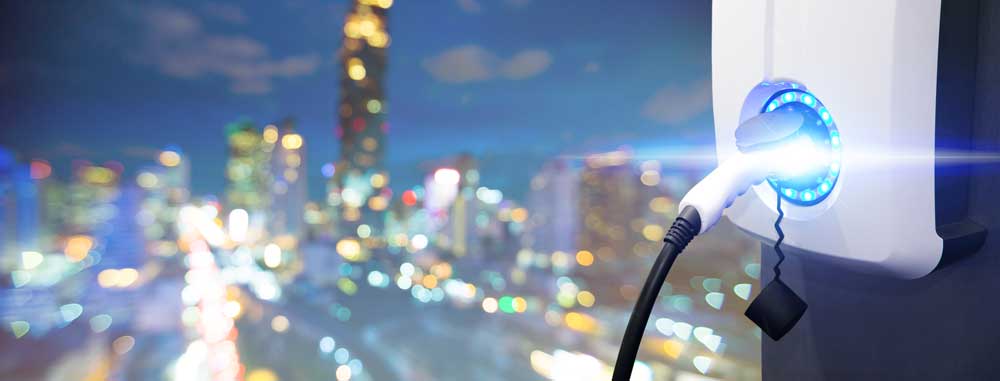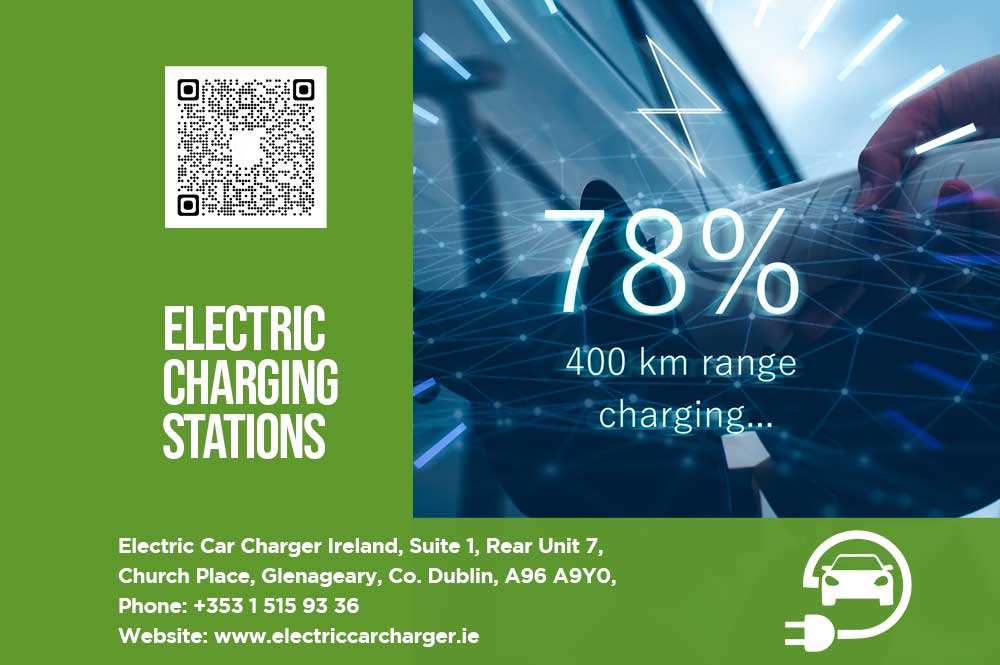Table of Contents
John was excited to take his new electric vehicle on a long road trip. He figured that with so many electric charging stations popping up, he wouldn’t have any trouble keeping his EV charged on the journey. However, after stopping at a small town along the route, John realised too late that the charging station only offered slow level 1 charging. What he expected to be a 30-minute charging stop turned into a 5-hour wait. John’s road trip was ruined by not understanding the major differences between EV charging station types. (More info on – EV Charging Station Contractors)
There are many important distinctions between the various electric vehicle charging stations available today. In this blog post, we will compare and contrast the pros and cons of the major types of EV charging stations. You’ll learn the key differences between level 1, level 2, and DC fast charging stations. We’ll also dive into the charging connectors, public versus private stations, and consider the major charging networks. Understanding the advantages and disadvantages of each charging option will ensure you choose the right station for your needs and avoid charging headaches. (More info on – Charging Station For Electric Vehicle)
 Charging basics:
Charging basics:
There are three primary levels of electric vehicle charging (More info on – Wallbox EV chargers):
Level 1 – This uses a standard household 120V outlet to deliver 2-5 miles of range per hour of charging. Best for overnight charging at home.
Level 2 – These stations operate on 240V to provide 10-20 miles per hour charged. Often used for home and public stations.
DC Fast Charge – This provides the fastest charging, typically adding 60-100+ miles of range in 15-30 minutes. Ideal for long trips.
In addition to the charging level, electric vehicles use different connectors to plug into stations, with CCS, CHAdeMO, and Tesla being the most common. Now let’s explore the pros and cons of each charging station type in more depth! (More info on – EV Charging Connector Types)
Level 1 Home Charging Stations
Level 1 charging stations provide the most basic and low-cost EV charging solution. They utilize a regular household outlet and the portable EV charging cable that comes standard with the vehicle. No additional charging equipment is required beyond plugging directly into an available outlet. (More info on – Zappi Car Chargers)
Pros:
-
-
- Very affordable – No extra charging equipment is needed since Level 1 uses existing household outlets.
- Simple installation – Just plug into a standard house electrical outlet without any electrical work or modifications.
- Portable and compact – The charging cable allows charging at different household outlets as needed.
- Sufficient for basic charging needs – Provides 10-15 miles of range per hour charged.
-
Cons:
-
-
- Very slow charging speeds – Fully recharging an EV battery can take over 24 hours.
- Not ideal for daily commuting and regular use – The slow pace makes Level 1 stations impractical as a primary charging method.
- Potential electrical risks – Outlets not designed for high-amp draw of EVs; can overheat or degrade over time.
- No charge monitoring or safety features – The basic outlet provides no notifications or safeguards.
-
Level 2 Home Charging Stations
Level 2 EV chargers are the intermediate EV home charging solution preferred by most EV drivers. They provide significantly faster charging than Level 1. Level 2 stations require professional installation of specialised charging equipment connected. Most can fully recharge a depleted EV battery overnight. (More info on – EV Chargers Ireland)
Pros:
-
-
- Faster charging speed – Adds 10-25 miles of range per hour charged.
- Completely recharges most EVs in 8 hours or less.
- Allows daily charging needs – Sufficient for regular commuting and use.
- Safer than Level 1 – Dedicated circuit and equipment designed for EV use.
- Charging monitoring and control – Displays charging status and schedules charging.
-
Cons:
-
-
- Higher upfront costs – Charging unit purchase and installation requires significant financial investment when compared to Level 1 chargers. (More info on – EV Charger Installers Dublin)
- Professional installation required – Electrical modifications are complex requiring an electrician.
- Lower charging speed than fast charging – Still requires hours for a full charge.
-
DC Fast Charging Stations
DC fast chargers are the fastest type of electric vehicle charging station, designed to quickly charge EV batteries to 80% in 20-40 minutes. They work by delivering direct current directly to the battery using up to 800V power compared to 240V maximum for Level 2 charging.
Pros:
-
-
- Extremely fast charging – Adds 60-125 miles of range in 15-30 minutes.
- Best for road trips – Enables long-distance driving by recharging quickly.
- Growing infrastructure – More DC fast chargers coming online meets demand.
- Compatible with most new EVs – Works with CCS and CHAdeMO connector equipped vehicles.
-
Cons:
-
-
- Very expensive – Equipment and installation of a commercial unit costs are huge!
- Electricity costs are higher – Fast charging uses 3-4x more power.
- Potential battery degradation – Frequent fast charging can reduce battery lifespan.
- Limited locations – Not as readily available as Level 2 public chargers yet.
-
Public vs Private Charging Stations
Public EV charging stations offer convenience for charging on the go but can experience reliability issues or access limitations. Home charging stations provide consistent charging but require an upfront investment in equipment and installation. (More info on – Commercial EV charger installation)
Public Station Pros:
-
-
- Convenient locations – Retail, citywide areas, parking garages, etc.
- Allow charging when away from home.
- No equipment purchase needed.
- Some networks offer roaming access to compatible stations.
-
Public Station Cons:
-
-
- Availability not guaranteed – Stations may be in use or out of service.
- Fees often required – Pay per session or monthly network subscriptions.
- Varying charging speeds – Could be slow Level 2 or fast DC charging.
- Security risks – Public exposure for vandalism or damage.
-
Private Home Station Pros:
-
-
- Accessibility – Always available when you need it.
- Familiar location – Parking and access conveniently at home.
- Cheaper long-term costs – Avoid public charging fees.
- Faster charging available – Home installations can use Level 2 or DC.
-
Private Home Station Cons:
-
-
- Upfront equipment and installation costs – €615-€1500+* expense. (More info on – Car Charger Installation Cost)
- Professional installation required – Complex 240V wiring.
- Provides charging at just one location – Not usable when travelling.
-
In reviewing the different types of electric vehicle charging stations, there are clearly many factors to consider. Each level of charging station has its own distinct pros and cons regarding charging speed, convenience, accessibility, and costs. Key takeaways include:
-
-
- Level 1 is the most affordable option but very slow charging makes it impractical as a primary solution.
- Level 2 delivers much faster charging for a reasonable price, ideal for regular home charging needs.
- DC fast charging enables rapid charging for travel but has high equipment costs.
- Public stations provide convenient charging on the go while home stations offer reliable 24/7 access.
-
When selecting an electric vehicle charging station, carefully assess your driving habits, budget, access to electrical, and other needs. Those who drive longer daily distances or tend to take frequent road trips may want to invest in a high-speed DC fast charger. For basic daily commuting and around-town driving, a Level 2 home or public station will likely meet your charging requirements. Weigh the trade-offs and installation factors to choose the optimal EV charging solutions for your circumstances.
As electric vehicle adoption accelerates globally, charging networks and infrastructure will continue expanding and improving. Prices and technology will also progress over time, making EV charging even more practical and seamless. The future points to an electric transportation era with convenient, affordable charging options accessible everywhere you go.
Frequently Asked Questions
What are the different levels of electric vehicle charging in Ireland?
The main EV charging levels in Ireland are Level 1, Level 2, and DC fast charging. Level 1 uses normal household sockets. Level 2 offers faster charging on 240V. DC fast charging provides rapid charging in 15-30 mins.
Which electric charging station is best for home use in Ireland?
Most Irish EV drivers prefer Level 2 stations for home charging. Though pricier than Level 1, Level 2 provides faster charging better suited for daily commuting. Level 2 adds about 10-20 km of range per hour.
How long does it take to charge an electric car in Ireland?
With Level 1, expect about 3-8 km of range per hour charged. Level 2 fully charges most EVs in 6-10 hours. DC fast charging powers to 80% in 15-30 minutes.
What EV charging connectors are used in Ireland?
The CCS connector is compatible with most EVs sold in Ireland including Volkswagen, Nissan, and Renault models. Some Irish EVs use CHAdeMO connectors instead.
Where can I find public electric charging points in Ireland?
Apps like ChargePoint and ESB eCars map public charging points across Ireland. Stations can be found at shopping centres, motorway services, hotels, etc. (More info on – EV Public Charging)
How can I get a home EV charger installed in Ireland?
Contact a Registered Electrical Contractor (REC) to assess your electric supply and install a dedicated circuit and wall-mounted charging unit. Typical costs are €1,000-€2,000.
Are electric car charging stations expensive in Ireland?
Home Level 2 charging units average €615-€1,500* for equipment and installation. Public DC fast-charging units cost around €15,000-€60,000*. Electricity costs are roughly €0.20-€0.50 per kWh approx, depending on the service provider. (Prices mentioned will vary depending on your specific installation project and are after the SEAI grant)
Related search terms: ev charging stations, electric car charging stations, electric vehicle charging stations, ev charging stations near me, ev charging equipment, ev charger installation, charging stations for electric cars, electric car charge points, ev charging units, ev charging points, electric vehicle supply equipment, 220v ev charging station, charge point charger, ev plug-in station, electric vehicle charging point, ev charger for home, workplace ev charging, charge ev at home, install home ev charger, ev charging socket, what is an ev charger, dc fast charge station, high-speed ev charging, rapid ev charging, supercharger station, electric car chargers for hotels
Ever wondered about “Your Business’s EV Charging Policy“….Check out our latest blog post for details.




